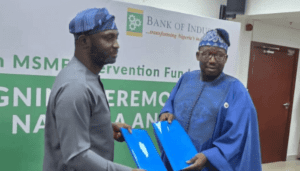

Reps to probe alleged exploitative pricing practices against Nigerian businesses
The House of Representatives has resolved to probe the exploitative and predatory pricing practices against Nigerian Businesses by their foreign counterparts operating in the country.
The resolution followed the adoption of a motion by Rep. Babajimi Benson (APC-Lagos) during plenary in Abuja on Tuesday
Presenting the motion, Benson said that international business ethics and standards required businesses to operate in a fair, healthy, and efficient manner while ensuring competitive trade practices at home and abroad.
He added that some Nigerian businesses had suffered harsh and unfair competition and business relations with their foreign business counterparts.
“Prior to the commencement of the Lagos-London route by Air Peace Airlines for below N1 million, foreign airlines like British Airways, Ethiopian Airlines, sold their one-way air tickets for as high as N4 million.
”As soon as Air Peace Airlines commenced the sale of their tickets at a lower price, other airlines dropped their prices far below that of Air Peace Airlines.”
He noted that this was with the intention of frustrating Air Peace Airlines’ London route operations.
He said that Dangote Oil Refinery and Petrochemicals Company was also currently being frustrated by International Oil Companies (IOCs) in Nigeria by denying them crude and other unfair business practices thereby threaten its survival.
The lawmaker added that Nigerian businesses had also been subjected to other unfair treatment both home and abroad in an effort to disrupt their smooth operation.
He said that the objective of foreign multinationals was to ensure Nigeria remained at their mercy by patronising only their services or exporting crude oil and importing refined one.
Adopting the motion, the committee urged the Federal Competition and Consumer Protection Commission (FCCPC), to immediately halt the unfair business practices perpetrated by certain foreign businesses operating in Nigeria.
The House mandated the Committees on Aviation, Commerce, Petroleum (Upstream and Downstream) and Foreign Affairs to investigate the circumstances surrounding the predatory pricing practices.
The committees would also look at the unethical business competitive behaviours by foreign airlines and IOCs and report within four weeks for further legislative action.




